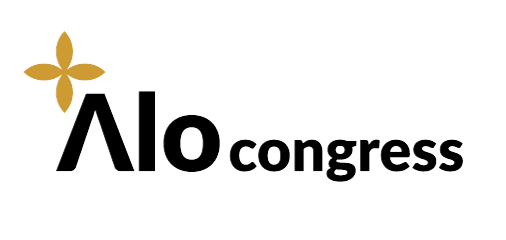


Short courses - Special sessions | Sunday, 8th September
Organizers: Hanna Tuomisto (University of Helsinki and the Natural Resources Institute Finland, Luke) and Nicole Tichenor Blackstone (Tufts University)
Date and time: 12:00 - 17:00, 8th September
Location: University of Barcelona, meeting room “Ramón y Cajal”
Zoom option: available
By invitation only. If you have worked or are actively working on cultivated meat LCAs and are interested in attending, please emailhanna.tuomisto@helsinki.fi to introduce yourself and be added to the participant list.
On-site attendance requires being registered at the Conference.
Description: Wide variability in LCA results for cultivated meat underscores the need for standardized guidance to estimate its environmental performance. Because of the nascency of the industry, practitioners face critical barriers in developing cultivated meat LCAs related to data availability, as well as data and system representativeness. Additionally, the choice of comparison products, byproduct handling, and boundaries of the analysis can significantly influence results, further underscoring the need for harmonized guidance. The objectives of this workshop are to develop consensus guidance for LCA practitioners on developing and implementing cultivated meat LCAs. This will become the core part of a short publication that interested participants will continue to co-author and submit in the months after the workshop. Participants will be expected to pre-read materials (i.e., an initial proposal of harmonized guidance) in advance of the workshop to make best use of the workshop time.
Preliminary agenda
Organizers: FOLOU & WASTELESS projects. Joan Colón, Nancy Peña and Jorge Senan (BETA Technological Center, University of Vic – Central University of Barcelona), Ana Isabel Novo de Barros (University of Trás-os-Montes and Alto Douro) and Sofia Reis (ISEKI-Food Association).
Date and time: 14:00 - 16:00, 8th September.
Location: University of Barcelona, room “Aula 112”
How to Attend: Limited physical attendance (90 people). To register, please email folou@uvic.cat. This session is open to all registered conference attendees.
Harmonized methods for Food Loss and Waste LCA
The mitigation of food waste (FW) and losses (FL) is crucial for sustainability (Sustainable Development Goal 12.3). Thus, assessing the FLW contribution to the overall environmental burdens associated to the agri-food value chain is essential, e.g., impacts associated with resource consumption, field operations, food left on the ground or discarded and FLW treatments (on-farm or external). Current commercial LCA databases often do not fully consider these impacts, especially for the FL at the primary sector.
FOLOU and WASTELESS project aims to fill the gap by developing harmonized methodologies to account and allocate the impacts related to FL and FW. During the session, the presentation of an initial proposal of harmonized guidance on quantification and assessment of FL will be presented (if you are interested in reading in advance the guidance please write an email at folou@uvic.cat) and discussed aiming at incorporating expert feedback from panelist and attendees.
Preliminary agenda
Special OPEN Session | 10th September
Organizers: Llorenç Milà i Canals (United Nations Environment Programme, Life Cycle Initiative) and Laura Scherer (Leiden University, Institute of Environmental Sciences)
Date and time: 10th of September, 1:40 – 2:25 PM
Location: University of Barcelona, Auditorium Paranimf
How to Attend: Open session, registration not required.
Description:
The Life Cycle Initiative started GLAM in 2013 in collaboration with the University of Michigan, the Norwegian University of Science and Technology (NTNU), and Denmark’s Technical University (DTU) to enhance global consensus on environmental life cycle impact assessment indicators. The project aims to generate tangible and practical recommendations for different environmental indicators and characterization factors used in Life Cycle Impact Assessments (LCIA).
GLAM works with a balanced mix of international experts from three topical tracks: LCIA method developers, providers of life cycle thinking studies (primarily consultants and industry associations), and users of life cycle information, including governmental and intergovernmental organizations, government, industry, NGOs, and academics.
The objective of this workshop is to provide participants with a thorough understanding of the GLAM framework. We will begin by introducing the basics of GLAM, followed by a detailed presentation of the GLAM method and the GLAM Characterization Factors (CFs) with a focus on food-related impact categories. Additionally, the workshop will outline the process for consultation and stewardship within the GLAM framework.
Preliminary agenda:
Side event | 7th - 8th September
A hackathon to work collaboratively on data or models related to the HESTIA project.
Hackathon for the HESTIA (University of Oxford) project on the 7th-8th September 2024 in Barcelona (the weekend before LCA Food 2024). HESTIA aims to increase the accuracy and consistency of environmental data about food products, so that farmers, businesses, and researchers can understand and reduce the sector’s environmental impacts. All data are free, open-source, and open-access.
At the Hackathon, we’ll work on projects like:
Limited physical attendance (40 people), with virtual option available. Cost: £200 / €230 (to cover the venue and meals).
Register your interest by 1st July 2024 by answering four short questions at this link: https://lnkd.in/e2xziCiB. For registrations after this date, please email emily@hestia.earth
Alo Congress – VB Group
Numancia 73
08029 Barcelona - España
Phone: (+34)933 633 954
Queries: secretary@lcafood2024.com
Payments and invoices: invoices@lcafood2024.com

